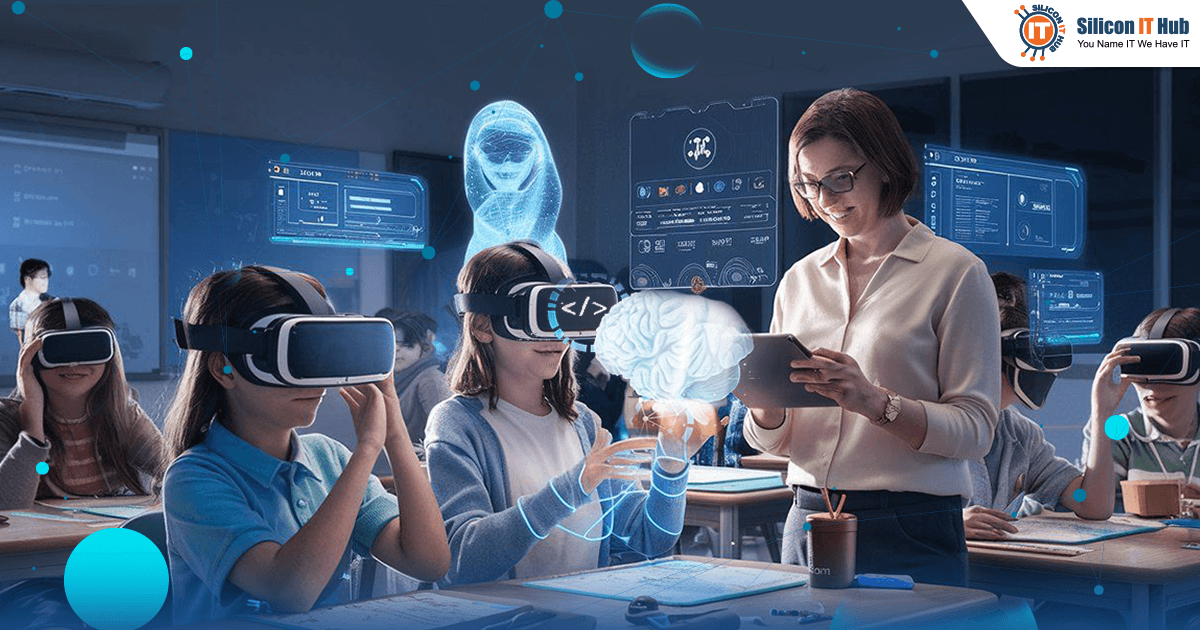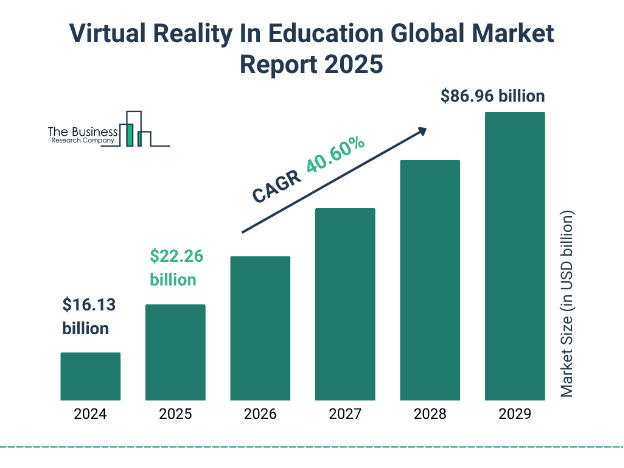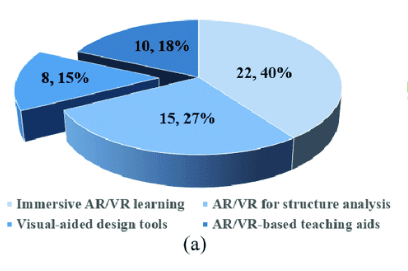Top Ways VR Can Drive Transformation for the Education Sector

Introduction
Education has become more interactive with rich visual experiences thanks to Virtual Reality (VR) technology. As this technology brings tools for more engaging and immersive experiences, we witness a transformation in the education sector. Virtual reality application development drives this transformation, opening doors to new possibilities for educators.
Immersive learning environments can increase curiosity and ensure deeper understanding. Educators can leverage the benefits of VR technology in Science, history, medicine, and engineering-related subjects with the help of a VR application development company.
This post will dig deep into the key VR trends that can transform the education sector. But, before moving ahead, let’s understand the importance of virtual reality in the sector. This blog will also discuss the scope of immersive environments in modern learning systems.
Reasons Virtual Reality Matters in Education
As technology evolves, educators can deploy VR apps in the cloud, on-premises, and in areas like schools, training institutes, etc. Looking at the benefits, it is expected that the VR in the education market will grow exponentially with a CAGR of over 40 percent. The following graph shows that the market may reach USD 86.96 billion by 2029.

Whether it is skill-based training, educational analytics for performance tracking, or integration of gamification in the education system, VR can be a game-changer. Simply put, VR offers a transformative approach by combining immersion, accessibility, and engagement into a single platform. A reputed VR app development company can make it possible.
VR apps can enable active learning by facilitating students to interact with virtual objects and simulate real-world situations. It can improve learning experiences in immersive environments. Let’s understand this in detail.
Scope of Immersive Environments in Education
Virtual Reality can transform learning experiences beyond traditional classrooms. For example, lab simulations enable learners to conduct complex scientific experiments in a virtual environment. This eliminates the need for physical materials or a hands-on experience in the laboratory especially for hazardous materials.
In other words, safety and repeatability are some major benefits of immersive environments. Virtual Reality application development services can keep students away from hazardous environments by offering simulated experiences. As the technology becomes more accessible, it will become a core part of education.

The above blog shows the usage of VR technology in teaching aids (10.18%) and immersive learning (22.4%). We can expect that this ratio will increase gradually as new trends will emerge.
Top VR Trends that Transform the Education Sector
VR adoption is steadily increasing in the education sector. Here are the top 8 trends that have the capability of transforming the learning process.
Virtual Classrooms
The concept of remote education has gained power from avatar-based virtual classrooms. These classrooms facilitate students and teachers to interact in shared virtual spaces while simulating the feel of a physical classroom. This trend can strengthen real-time collaboration and discussions for group projects irrespective of the geographical distance between students.
Gamification using VR
VR-based learning games can offer virtual rewards, achievements, and challenges to students. It can increase motivation and participation by converting students into active players from passive listeners. Gamification enables students to learn topics in interactive ways, like solving puzzles and completing missions or tasks.
Subject-Specific Simulation
VR offers customized simulations that mimic real-world events or circumstances. VR apps can make complex subjects in history, medicine, physics, and engineering more interesting and engaging. We can expect that the simulation characteristics will convert theoretical lessons into unforgettable experiences over the period.
Personalized Learning
The advent of AI in education can open the doors to new possibilities in VR apps. It will make education highly personalized with interactive experiences in line with a student’s learning style and response. AI and VR combination will promote an adaptive learning model to ensure that every student can get a unique experience for improving academic performance.
Accessible Learning
This is another promising VR trend that can make the education sector more inclusive. It will make the learning environment adjustable and accessible for students with disabilities. For example, audio guidance and customizable visuals in the VR app can assist students with difficulties in hearing or vision. It can enhance the accessibility of education.
Soft Skills
VR is also useful in building essential soft skills. Universities can use VR apps for developing traits of leadership traits through effective communication. Students can practice public speaking and team collaboration, conflict resolution, and job interviews in a simulated environment. We can expect this trend to gain ground in the coming time.
Integration with AR
The future-ready classroom gives blended immersive experiences. This gives rise to Mixed Reality (MR) by combining VR with AR. Schools or universities hire dedicated developers to get robust solutions that can overlay digital information onto physical spaces in immersive interactions. It will give students multi-layered learning experiences.
Data-Driven Insights
This is one of the most important VR trends in the education sector. VR platforms can collect data related to the student’s behavior, performance, decision-making, and accuracy. This valuable information enables educators to analyze overall performances and learning bottlenecks. These insights can make the curriculum more effective.
It is imperative to find the right virtual reality app development company to leverage the benefits of these upcoming trends.
How to Leverage the Benefits of VR Technology
Educational institutions can leverage VR for enhancing learning outcomes and transforming the overall experience. Schools and colleges can save on travel costs and address logistical challenges by arranging virtual field trips to historical monuments. Realistic simulations for theoretical topics can give students immersive learning environments.
Moreover, VR environments are useful for students with physical or learning disabilities. Institutions can improve teacher training and professional development with the help of virtual reality application development. Finally, VR technology supports remote, hybrid learning so that colleges and universities can manage distance learning programs.
However, educational institutions need to address key challenges and consider some aspects for leveraging these VR benefits.
Key Challenges and Considerations for Adopting VR
Adoption of virtual reality applications comes with certain challenges for every sector, and the education sector is no exception. One of the main issues is the hardware and infrastructure cost. Schools with limited budgets find it challenging to integrate a VR app. Other issues include the availability of curriculum-aligned VR content and resource limitations.
Apart from these challenges, we can mention some considerations while adopting VR apps effectively. One of these considerations is privacy and data protection. As VR-powered systems collect data related to student behavior and learning ability, it is essential to protect privacy.
Schools and colleges can hire dedicated developers from a reputed VR app development company to address these challenges and follow the best practices.
Looking to Hire Dedicated Developers for Building a VR App from Scratch?
LET’S CONNECTConcluding Remarks
Virtual Reality can transform the education sector by increasing accessibility and supporting collaboration in a simulated environment. Virtual reality application development can assist schools or universities to leverage the benefits of upcoming trends for increasing accessibility and personalization based on meaningful data.
Silicon IT Hub is a leading VR app development company. Our in-house team of experienced VR app developers can build high-end solutions for various industry sectors including manufacturing, retail, education, and healthcare. Contact us to make customized applications using emerging technologies like AI, ML, and VR.





 Have an Idea?Let’s Build It Together!
Have an Idea?Let’s Build It Together!